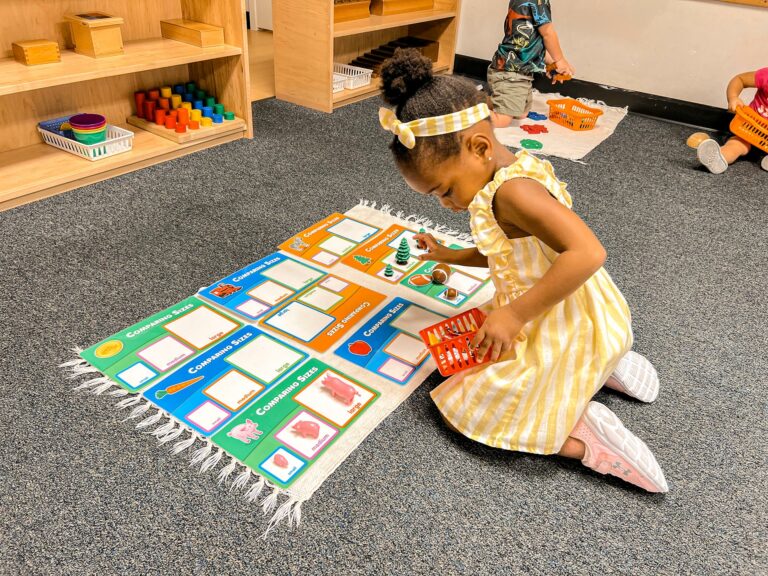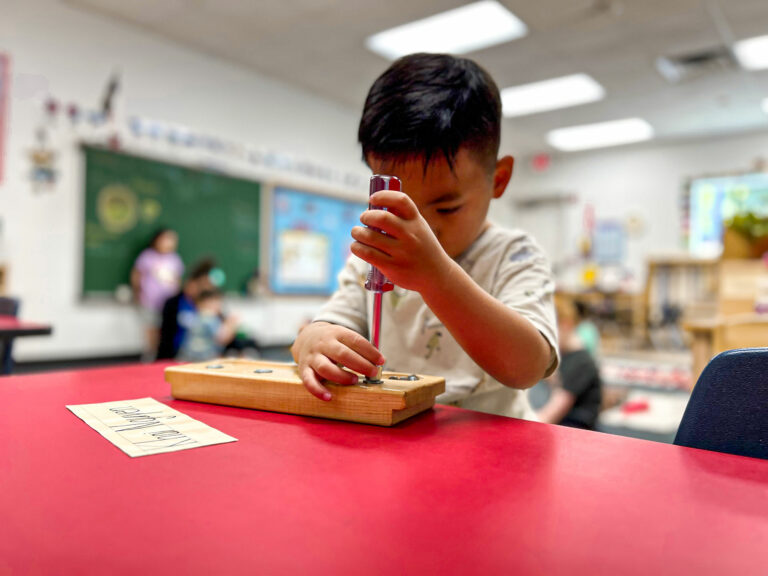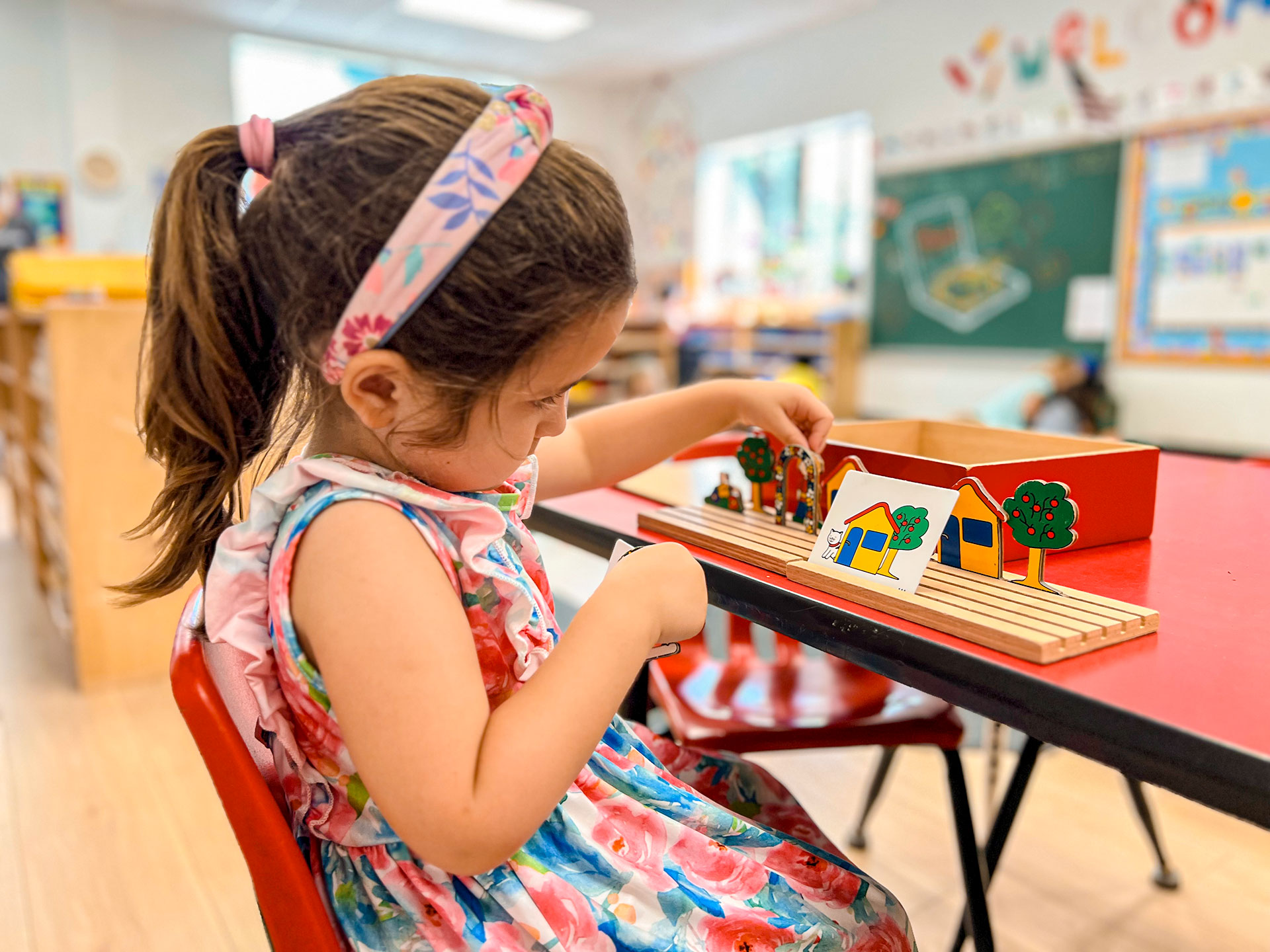Montessori education has been a well-researched, time-tested teaching system for over a century. Developed by Dr. Maria Montessori, a physician and educator, this approach emphasizes the freedom of children to choose how they learn and treats them as individuals capable of mastering any subject at any stage of their development. Five core components guide the Montessori curriculum embedded within this unique learning method.
1. Individualized Work
At the heart of Montessori education is individualized work. Each child has their workspace and materials, allowing them to explore and learn independently. Rather than relying on coordinated instruction in front of a teacher, this component fosters self-direction and independence.
2. Freedom to Learn at Your Own Pace
The second core component of Montessori education is the freedom to learn at one's own pace. Children receive ample time and opportunities to acquire knowledge based on readiness. Unlike traditional schedules that dictate the timeframe of learning specific topics, Montessori education allows children to progress at any time during their development.
3. Sensory Exploration
The third core component revolves around sensory activities, encompassing touch, movement, sight, and sound. Montessori education encourages children to engage all five senses while exploring various materials and objects. This multi-sensory approach enhances their learning experience and facilitates a deeper understanding of the world around them.
4. Self-Directed Study
In Montessori classrooms, self-directed study is a fundamental component. Children receive objectives but not necessarily explicit instructions. Instead, they are encouraged to figure out solutions independently, relying solely on their curiosity and intrinsic motivation as guides.
5. Nurturing a Peaceful Environment
The fifth core component focuses on fostering an environment of peace and respect for others. Montessori classrooms create a serene atmosphere, with soft lighting and calm music, promoting concentration and a sense of tranquility. Additionally, the Montessori philosophy emphasizes the importance of allowing children to enjoy their childhood.
Why Choose the Montessori Approach?

Montessori education offers a unique approach that empowers children to choose how they learn and encourages independent work. These schools primarily cater to children aged 2 to 12 and depart from traditional curricula by inviting children to explore their environment and follow their interests. Children can work independently and progress at their own pace with no predetermined schedules or strict deadlines.
By engaging in self-directed study, children develop essential skills such as self-control and independence, which will benefit them throughout their lives. They also have numerous opportunities for sensory exploration, utilizing touch, movement, sight, and sound to deepen their understanding of the world. The peaceful environment of the Montessori classroom, complemented by a focus on values like the purity of thought and physical health, cultivates holistic development and concentration skills.
The Benefits of Montessori Education
Choosing Montessori education brings several benefits to children:
1. Hands-on Learning
Montessori education emphasizes hands-on experiences, fostering active engagement in the learning process.
2. Exploration and Self-Discovery
Children are encouraged to explore their surroundings and discover new things about themselves and the world they inhabit.
3. Individualized Pace
Learning at one's own pace has long-term benefits, allowing children to truly grasp concepts before moving on.
4. Development of Self-Control and Independence
Montessori education nurtures the development of self-control and independence, equipping children with valuable life skills.
5. Reinforcement of Essential Values
The curriculum reinforces values crucial to a child's well-being, including purity of thought and physical health.
6. Comprehensive Education
Evidence suggests that Montessori education produces well-educated citizens by emphasizing the fundamentals of reading, writing, math, science, history, and geography.

Starting Montessori at Home
It’s not hard to introduce your child to Montessori methods at home. Here are some activities to get you started:
1. Provide your child with blocks and allow them to explore how they fit together.
2. Let your child independently select books from the library or bookstore.
3. Engage in games involving counting and math, such as Candyland, Chutes and Ladders, or Go Fish.
4. Read a story with your child and encourage them to act it out.
5. Ask your child to draw a character from a story and pretend to be that character during playtime.
Montessori education is a successful and transformative approach to learning. Child-centered, prepared environments and mixed-age classrooms lay a foundation for a lifetime of educational growth. Montessori schools empower children to become independent thinkers, creative problem solvers, and responsible members of society. Consider enrolling your child today and embark on a journey of meaningful education. Contact us to learn more.

